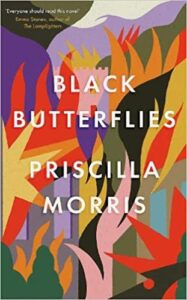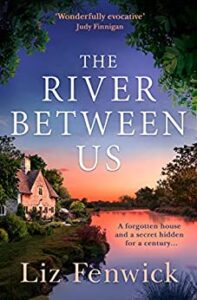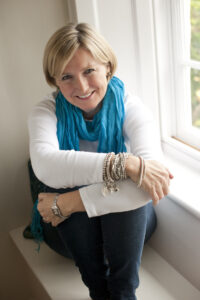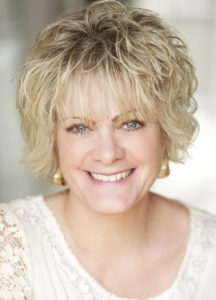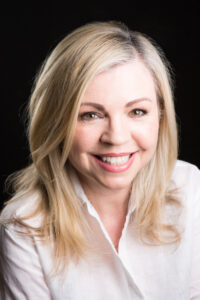 At the heart of my novels are relationships at a point of turmoil or crisis, because that is when they are most interesting. In Learning To Speak American, Duncan and Lola Drummond try to celebrate their twentieth wedding anniversary in sun-drenched California, while still grieving the loss of their daughter two years earlier. In An Unsuitable Marriage, Geoffrey Parry loses his business, his family home and his dignity. He is forced to move in with his elderly mother, testing their relationship, while his wife Olivia, takes a position at houseparent at their son’s prep school, testing their relationship too. In my third novel, The Mortification of Grace Wheeler, Grace is faced with a lonely empty nest when her only child, Josh, goes to university. For eighteen years they have been a family – Cal, Grace and Josh – but now Grace and Cal are a couple again, and she can’t see how that will work. The story begins the day before Josh – a keen fisherman – leaves home. Grace has taken him to one of his favourite fishing spots and watches wistfully from the grassy bank.
At the heart of my novels are relationships at a point of turmoil or crisis, because that is when they are most interesting. In Learning To Speak American, Duncan and Lola Drummond try to celebrate their twentieth wedding anniversary in sun-drenched California, while still grieving the loss of their daughter two years earlier. In An Unsuitable Marriage, Geoffrey Parry loses his business, his family home and his dignity. He is forced to move in with his elderly mother, testing their relationship, while his wife Olivia, takes a position at houseparent at their son’s prep school, testing their relationship too. In my third novel, The Mortification of Grace Wheeler, Grace is faced with a lonely empty nest when her only child, Josh, goes to university. For eighteen years they have been a family – Cal, Grace and Josh – but now Grace and Cal are a couple again, and she can’t see how that will work. The story begins the day before Josh – a keen fisherman – leaves home. Grace has taken him to one of his favourite fishing spots and watches wistfully from the grassy bank.
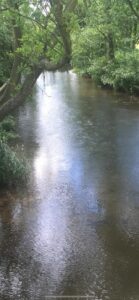 In many ways it was a perfect day. Late summer sun, buttery and low, showered gold dust on the river as it rippled over shallow rocks. A riot of insects flitted over the deeper water, tempting unsuspecting fish to the surface. Josh stood knee-deep in his waders and cast out with a long swish of his rod.
In many ways it was a perfect day. Late summer sun, buttery and low, showered gold dust on the river as it rippled over shallow rocks. A riot of insects flitted over the deeper water, tempting unsuspecting fish to the surface. Josh stood knee-deep in his waders and cast out with a long swish of his rod.
Grace sat on the riverbank, a tartan blanket spread out beneath her. The book her mother, Ruth, had given her lay face down on the picnic hamper – The Empty Nest: A Survival Guide. Ruth meant well, but even the title troubled Grace. It foreshadowed the vacuum Josh’s absence would create, and the spotlight it would shine on her marriage. From tomorrow, Grace’s own nest would be empty, and reading about it wasn’t how she wanted to spend this last day with her son.
Grace misses Josh terribly and is upset that Cal doesn’t. For him it’s a case of ‘job done’, an attitude that only highlights the distance between them. When she is advised to take up a hobby, Cal suggests she join his golf club, but she wants to spend less time with him, not more. Instead, she has fly-fishing lessons as a surprise for Josh when he comes home. Her instructor is a chilled and charming millennial, a complete contrast to Cal, more than twenty years her senior and unrepentantly set in his ways. Despite having always been true to her marriage vows, Grace finds herself drawn into a brief affair that has devastating consequences not just for her, but her entire family.
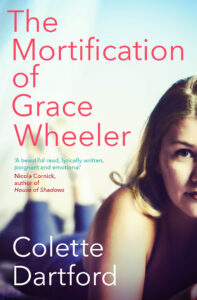 Rivers and lakes are the setting for some of the book’s more poignant scenes. As the story began by a riverbank, I wanted it to finish there too. ‘Bookend all the bad stuff’ is how Grace put it. I can’t say any more about what happens between these two excerpts, or how this particular day’s fishing will end.
Rivers and lakes are the setting for some of the book’s more poignant scenes. As the story began by a riverbank, I wanted it to finish there too. ‘Bookend all the bad stuff’ is how Grace put it. I can’t say any more about what happens between these two excerpts, or how this particular day’s fishing will end.
Josh strode out into the gin-clear water and made his first cast. Grace watched from the bank and remembered the empty-nest book Ruth had given her. She had dumped it into the recycling, unread. No great loss, she told herself. Nothing could have prepared her for the trauma of her empty nest. Even now, she could hardly believe everything that had happened.

